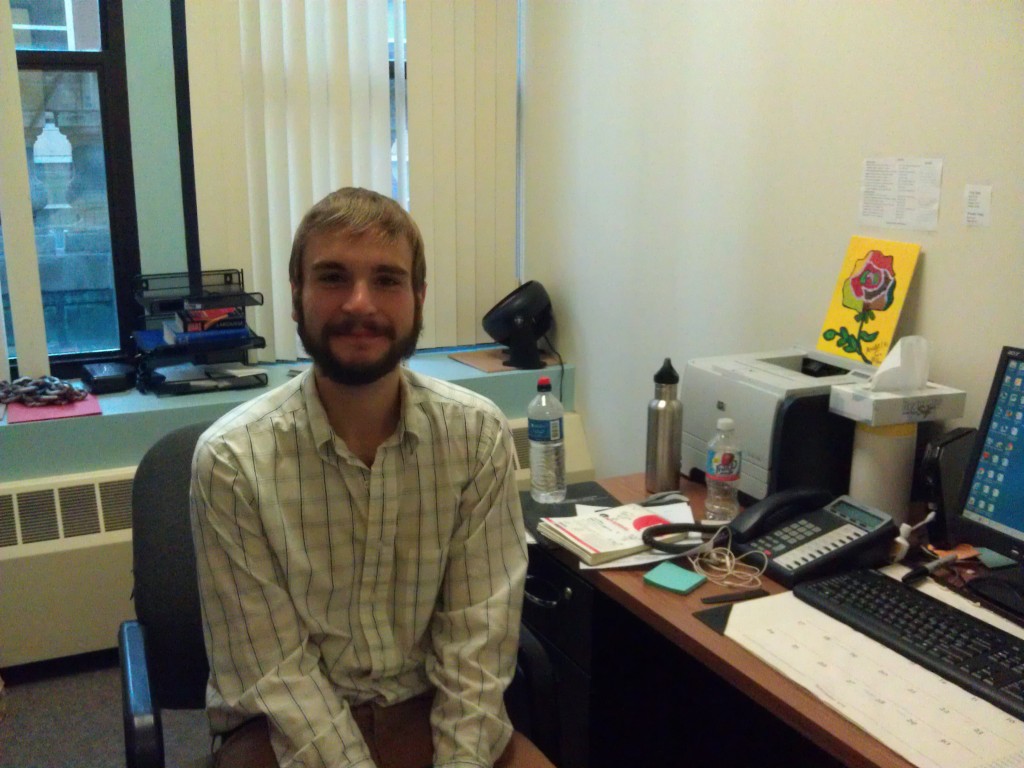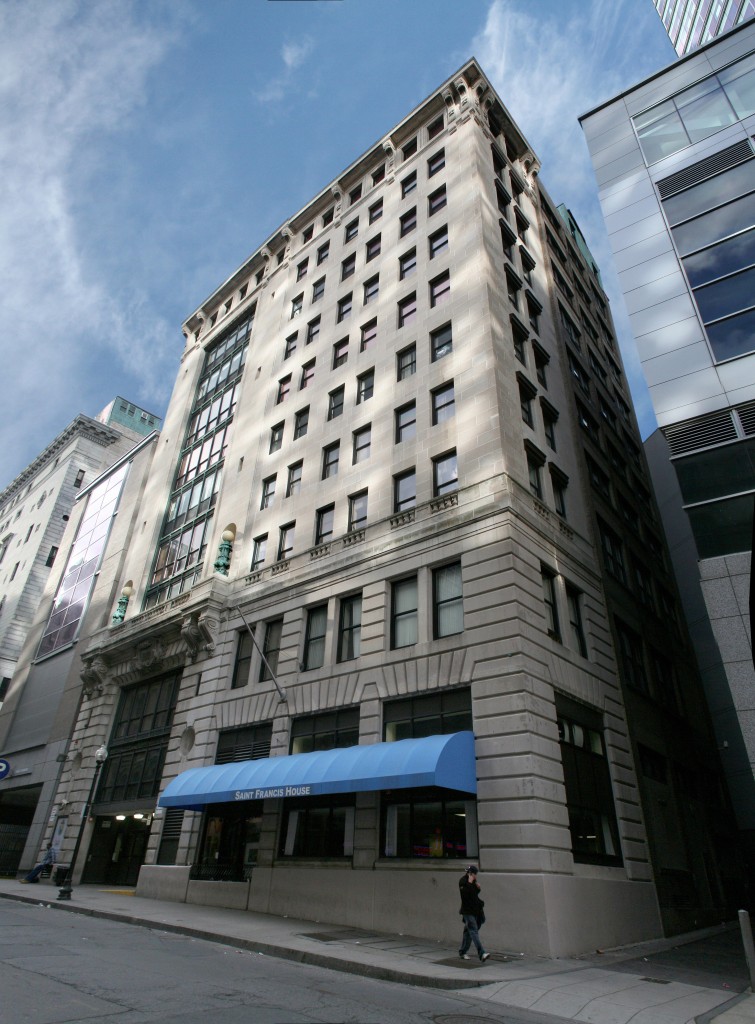Meet case manager Alex Morse
The Massachusetts Legal Clinic for the Homeless was founded in 1994. Since that time, it has served 2673 homeless and at-risk individuals, connecting them with volunteer attorneys who provide pro bono legal aid in cases of social security, housing, CORI and more. To honor the clinic as it heads into its twentieth year, we will be continuously profiling the people who help out behind the scenes. We begin with Alex Morse, who coordinates the clinic at St. Francis House.

There is no such thing as a typical day at work for Alex Morse, a case manager and administrative assistant at St. Francis House. Sometimes he meets with clients, assisting them with paperwork or housing and job searches. Other times, he finds himself downstairs in the day center, which he calls the “command center” of St. Francis House, conducting intakes for people seeking counseling, giving directions, helping out in the kitchen or sorting clothing.
Morse, who plans to pursue a master’s in social work, has always loved helping people. Growing up, he realized how often friends would seek out his advice. “I always knew that I was a shoulder to lean on and cry on, so I wanted to pursue that and I really love it,” he said.
He started as an intern in the day center during his senior year of college, while finishing a degree in psychology. Later, he took a job with the security team. When an administrative position opened up, his supervisors decided to create a job that mixed administrative duties and counseling, then hired him full-time.

Such a job is not without its frustrations. Some clients fall back into patterns of substance abuse, while others are haunted by past mistakes, held back by legal barriers that continue to affect them long after they have atoned or even served time.
“When we work with them, we see them maybe ten, fifteen, twenty years later, and they feel guilt and remorse and they just want to keep moving on with their lives, but they’re stuck and there’s nothing they can do,” Morse said.
Morse is active in combating such obstacles, serving as the coordinator for the Clearinghouse’s Legal Clinic for the Homeless. He discusses potential cases with Clearinghouse Executive Director Maribeth Perry and manages all other aspects of the clinic at St. Francis House. He said that through the clinics, clients find the support and advice needed to negotiate the legal system.
There is still a lot for Morse to celebrate. Many of his clients have jobs and are doing well. He said, “You can see it in their appearance, in their mindset, in their feelings and emotions, and that always brings a smile to my face.”
About St. Francis House:
Founded in 1984 by the Justice and Peace Committee of the Saint Anthony Shrine, and named in honor of the benevolent Saint Francis of Assisi, St. Francis House is the largest day shelter in New England. Through a mix of basic services, counseling, educational programs and permanent housing units, the shelter provides important resources and support for Boston’s homeless population.